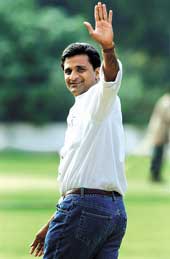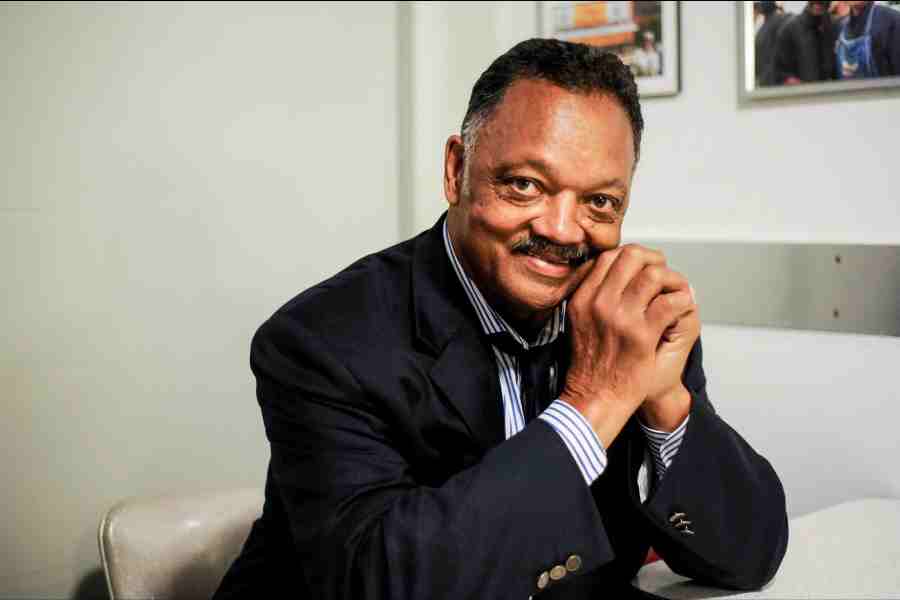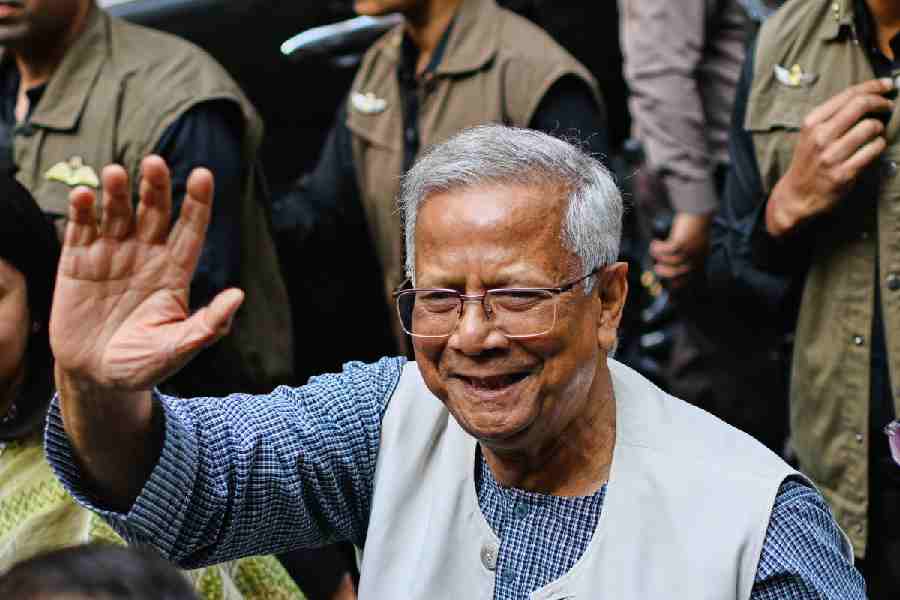 |
 |
Bangalore: “I don’t have much cricket left,” Jawagal Srinath told The Telegraph during the closing stages of this year’s World Cup. On Tuesday evening, in the presence of Board president Jagmohan Dalmiya, the senior pro announced retirement — this time, there won’t be a rethink.
The likelihood of such an announcement was, in fact, reported in these columns on Monday. Still, Team India will require time to adequately fill the slot vacated quite emotionally by a veteran saddled with a troublesome right knee. Srinath, of course, had ‘quit’ after the 2001-2002 tour of the West Indies, but was persuaded to return by captain Sourav Ganguly and the then chief selector, Brijesh Patel.
“It’s his body... It’s not holding up,” was Sourav’s response when informed of Srinath’s decision. He added: “We will miss him and, really, it was a pleasure playing with him... He has reached a decision and we should respect that...”
Apparently, the captain wasn’t exactly unaware that Srinath wouldn’t continue and, so, had begun to keep him out of his Australia-specific calculations.
Srinath, however, is going to have a “second innings” as Dalmiya put it. Clearly, it won’t surprise if he is eventually appointed Team India’s bowling consultant. For now, though, the Board president insisted nothing has been discussed.
Agencies add: Meanwhile, while making the announcement Srinath said the Indian team beating Pakistan in three World Cups were the most memorable moments of his 12-year career.
“India-Pakistan matches are always a big event, and when it is World Cup, it is something more than that. It is the high point of my career”, he said.
An emotional Srinath said when he looked back at his career, he had absolutely no regrets and the tenure was filled with fond memories. Quitting the game was a hard decision but a day had to come when one needed to move on in life. “I enjoyed each and every day of my cricket”.
Srinath said he was planning to set up an academy for fast bowlers though he had not firmed up any plans.
On the decision to hang up his boots, he said after the World Cup his prime aim was the Australian tour but his knee had been degenerating over a period of time. Strenuous rehabilitation also did not help him much.
“One can have the right frame of mind only when one has the right frame of body,” he said.
Srinath thanked many for their help and support, including his mentor Roger Binny, and said under Sourav and Sachin Tendulkar his cricket took a “new dimension”.
He said Sourav, in particular, infused a lot of confidence in him at the end of his career. “Sourav made me appear (as a bowler) more than what I was,” Srinath said. “This is the sort of confidence one expects from a captain.”
Srinath said that he had feared his career was over during his eight-month layoff in 1997, following a rotator cuff tear in his bowling shoulder. “At some point during the injury, I thought I was almost done,” he said.
Dalmiya said “Srinath’s feat was especially great since he and Kapil came at an era when spinners called the shots and fast bowling was just a ritual.”
Dalmiya said Srinath inspired bowlers to take up a career in fast bowling, adding, he was a role model for fast bowlers. “Indian cricket will always be grateful and obliged to Srinath,” he said.
Later in the evening, at a function organised by one of the sponsors, Australian captain Ricky Ponting said Srinath’s retirement was a surprise as he was expecting the fast bowler to tour Australia. “I was quite surprised when I heard that. All I knew a couple of weeks ago was that he wanted to tour Australia one more time,” Ponting said.
Describing Srinath as “a great performer for India for a long time”, Ponting said his record in one-day and Test cricket “stands superb”. “Looking back it is sad. He was one of the fastest bowlers who ever played for India and one of the best opening fast bowlers who played the game,” he said.










